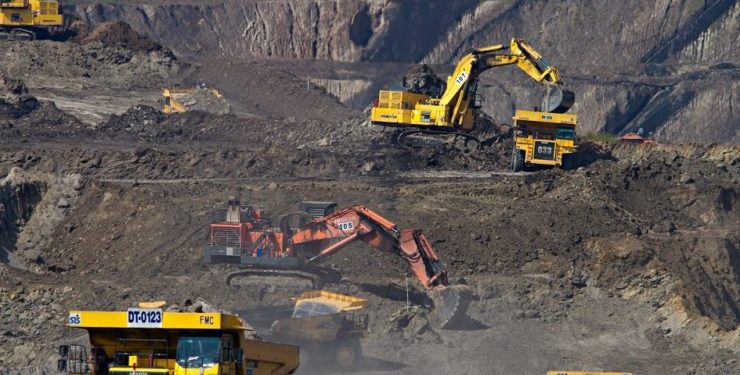NRGI, Help Foundation Africa Unveil Anti-Corruption Initiative to Tackle Mining Sector Fraud
The Natural Resource Governance Institute (NRGI) in partnership with Help Foundation Africa, has unveiled a new initiative to combat corruption in its mining industry, as policymakers, industry stakeholders, and civil society organizations gathered on Friday, March 28, 2025, for a validation workshop on Mining Corruption Assessment.
The event presented findings from a corruption risk assessment of the sector and introduced a set of globally recognized anti-corruption tools tailored to Ghana’s regulatory framework.
Addressing Systemic Weaknesses
Speaking at the workshop, Denis Gyeyir, Africa Senior Programme Officer at NRGI, underscored the mining sector’s vulnerability to corruption, particularly in small-scale operations, where regulatory oversight remains weak.
“NRGI has developed two key corruption assessment and diagnostic tools to help detect, assess, and prevent corruption. These tools, designed for global application, needed to be tested in a sector of strategic importance to Ghana’s economy,” Mr Gyeyir stated.
Ghana’s gold and mineral wealth play a central role in its economic landscape, yet the sector is frequently marred by allegations of illicit financial flows, regulatory breaches, and political interference. Gyeyir emphasized that opacity fosters corruption, making it imperative to equip journalists, civil society organizations, and anti-corruption agencies with tools to expose wrongdoing and advocate for structural reforms.
The initiative, he noted, is not a panacea for corruption but represents a critical step toward improving transparency.
“We partnered with Help Foundation Africa because of their strong grassroots engagement. This initiative is designed to highlight corruption risks, provide key stakeholders with practical tools, and establish mechanisms to prevent malpractice—whether through advocacy, media scrutiny, or regulatory intervention,” he added.
Following the validation phase, the tools will be tested with Ghana’s state anti-corruption institutions to assess their effectiveness and determine whether further refinements are needed before a broader rollout. Over time, the initiative is expected to extend to the oil, gas, and renewable energy sectors.
Legislative Reforms and Industry Oversight
Jacob Tetteh Ahuno, Programmes and Research Officer at the Ghana Integrity Initiative, described the initiative as timely, particularly as Ghana undertakes a review of its Minerals and Mining Act—a process seen as an opportunity to embed stronger anti-corruption provisions into the legal framework.
“Illegal mining has escalated, with far-reaching economic and environmental consequences. This tool arrives at a crucial moment, offering an opportunity to identify corruption risks and advocate for necessary legislative reforms that will improve industry oversight,” Mr Ahuno noted.
He expressed confidence that the findings could contribute to legislative amendments aimed at curbing regulatory loopholes, enhancing accountability, and mitigating the adverse effects of corruption on local mining communities.
Strengthening Governance in the Extractive Sector
Ghana, Africa’s largest gold producer, continues to grapple with challenges in resource governance, exacerbated by illegal mining and concerns over opaque licensing processes. While successive governments have pledged to tackle corruption in the sector, enforcement remains inconsistent.
For many industry observers, the latest initiative represents a broader push toward structural reforms that could bolster investor confidence and ensure that revenues from natural resources contribute meaningfully to economic development and social progress.
As Ghana navigates the complexities of mining sector governance, policymakers and civil society actors hope that tools such as these will play a role in strengthening institutional accountability, enhancing regulatory transparency, and reducing opportunities for corruption.







